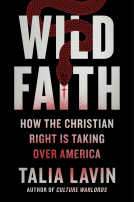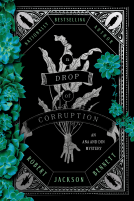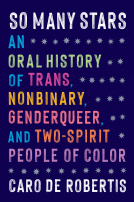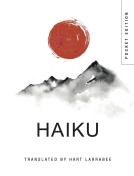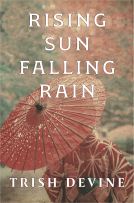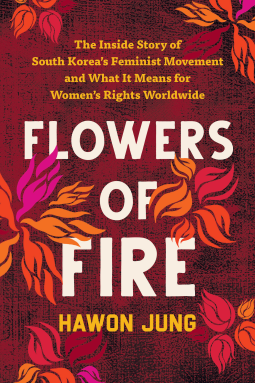
Flowers of Fire
The Inside Story of South Korea's Feminist Movement and What It Means for Women' s Rights Worldwide
by Hawon Jung
This title was previously available on NetGalley and is now archived.
Send NetGalley books directly to your Kindle or Kindle app
1
To read on a Kindle or Kindle app, please add kindle@netgalley.com as an approved email address to receive files in your Amazon account. Click here for step-by-step instructions.
2
Also find your Kindle email address within your Amazon account, and enter it here.
Pub Date Mar 07 2023 | Archive Date Mar 31 2023
Talking about this book? Use #FlowersofFire #NetGalley. More hashtag tips!
Description
"Invigorating debut . . . [a] full-throated rallying cry."
—Publishers Weekly
One of Ms. Magazine's "most-anticipated feminist books of 2023"
An eye-opening firsthand account of the ongoing and trailblazing feminist movement in South Korea—one that the world should be watching.
Since the beginning of the #MeToo movement, tens of thousands of people in South Korea have taken to the street, and many more brave individuals took a stand, to end a decades-long abortion ban and bring down powerful men accused of sexual misconduct—including a popular presidential contender. South Korean feminists know that the revolution has been a long time coming, between battles against its own patriarchal society as well as challenging stereotypes of docile Asian women in the Western imagination.
Now, author Hawon Jung will show the rest of the world that these women are no delicate flowers—they are trailblazing flames. Flowers of Fire takes the reader into the trenches of this fight for equality, following along as South Korean activists march on the streets, navigate public and private spaces where spycam porn crimes are rampant, and share tips and tricks with each other as they learn how to protect themselves from harassment and how to push authorities to act.
Jung, the former Seoul correspondent for the AFP, draws on her on-the-ground reporting and interviews with many women who became activists and leaders, from the elite prosecutor who ignited the country’s #MeToo movement to the young women who led the war against non-consensual photography. Their stories, though long overlooked in the West, mirror realities that women across the world are all too familiar with: threats of defamation lawsuits to silence victims of assault, tech-based sexual abuse, and criminal justice systems where victims’ voices are often met with suspicion and abusers’ downfalls are met with sympathy. These are the issues at the heart of their #MeToo movement, and South Korean women have fought against them vigorously—and with extraordinary success. In Flowers of Fire, Jung illuminates the strength and tenacity of these women, too often sidelined in global conversations about feminism and gender equality.
Featured Reviews
Flowers of Fire tells the fascinating history of feminism in South Korea (mostly) around the #MeToo movement. Jung does a great job at filling in gaps for people not familiar with South Korean history/prominent people without the book getting its pacing bogged down. I do want to thank the author for not shying away from including trans women (like a lot of authors tend to do when writing about feminism) as well as taking a stance against “gender critical”/TERF beliefs. Thank you to BenBella Books and Netgalley for an e-arc in exchange for an honest review.
 Media/Journalist 204870
Media/Journalist 204870
Delighted to highlighted this new release in “She Said: 1 Books for International Women’s Day” for the Books section of Zoomer magazine. (see column and mini-review at link)
Flowers of Fire is a powerful book that recounts the many fights of Korean women since the outcry of Seo Ji-Hyun on national television in 2018, but also of those who preceded her in the 20th century. I'm literally gobsmacked by this book, and I honestly find it difficult to review it because there is so much important information that I just want to buy my copy and read it all over again to make some annotations.
For a young woman like me, who has been a lover of South Korean culture for ten years now, I found this book eye-opening on many levels. If some of the cases reported in the third and fourth chapters, with Goo Ha-Ra, Sulli, or the Burning Sun case involving famous singers Seungri (BIGBANG) and Jung Joon-Young (FT-ISLAND), were already known to me and many of my fellow K-culture lovers out there in the world, other cases remained unknown. I believe that such a novel like Flowers of Fire can offer many insights into the dark side of Korean society and its industries, of which K-pop and Kdramas are part, and help young people who find an interest in them to be aware of the consequences they have--on bodies, on gender equality, among many other things that Jung Hawon develops remarkably well in her long essay.
I was really moved by Seo Ji-Hyun's fight and inspired by her courage to speak openly about her experience with sexual harassment. Her plea was the beginning of a long war against patriarchy, a war fought by young women who were also victims of sexual violence done by colleagues, friends, fathers, uncles, brothers, and even strangers. Jung Hawon lays out quite effectively the many forms sexual violence can take in Korea: from groping to spycams or even sextortion, public spaces have proven to be very threatening for women in the past few years. Even in their own houses/flats, they saw their privacy taken away from them and posted on pornographic websites. The perpetrators were rarely charged and let out of the police stations with little to compensate for the victims' trauma (admitting that money can repay the mental health issues women were left with).
What I found even more important in this book is the last chapter (My Body), which targeted the case of many transgender and transexual Koreans out there. In the West, young generations who discover feminism often think that it is an ending point that will eventually solve every issue related to gender equality, rarely knowing that feminism ignites other reflections concerning LGBTQIA+ people. I thought it extremely helpful to include these discussions in the book, only to make people aware that what is considered the core of today's conversations when it comes to gender equality is still a lot behind in other developed countries like Korea or even Japan and China.
There would be so many more things to talk about in this book (abortion laws, for instance!!!), yet I know this review will not be enough to cover them all. So I'm going to stop there and let another person find the opportunity to discover Jung Hawon's lines. On my part, I will recommend it to every person that is interested in Korean or even East-Asian feminism, as well as those women still fighting out there, marching in the streets or trying to find the power to do so.
An IMMENSE thank you to BenBella Books and Netgalley for the opportunity to read an advance copy and review it.
 Media/Journalist 594869
Media/Journalist 594869
Flowers of Fire is a valuable and captivating resource. The western world has no shortage of recent feminist literature, but there are very few works focusing on feminism and equality in other regions and cultures. I absolutely recommend this to readers looking to learn about the wider feminist movement.
“Flowers of Fire” from journalist Hawon Jung delves into the South Korean feminist movement of the past 10 years or so. I requested the book from NetGalley after reading one of her articles in the New York Times. It did not disappoint.
The book reads like a long newspaper article, so it is compelling and easily readable. It covers a variety of issues faced by women in South Korea, from expectations to accept sexual harassment to expectations to resign from positions once they become pregnant. It reviews the necessity of women in the workforce and the discrimination they face.
This is not a low-anxiety read by any means. There were numerous times I nearly stopped reading (see content warning below). However, this is an important story about women’s lives in the modern era. This book also explains two things I noticed when I visited South Korea several years ago. First, there were the ubiquitous ads for plastic surgery (they were EVERYWHERE in Seoul). I also noticed the number of young women who wore face masks (this was way before the pandemic years) during the heat of summer. Both of these are addressed in the discussion of impossible standards of beauty.
“Flowers of Fire” is both depression and anger-inducing, BUT it is also a story of hope. The reader witnesses women risking everything, banding together, and fighting for legal and socially-accepted protections. Though women in South Korea are still not on equal footing with men, they have made tremendous strides toward equality.
This book is great for those interested in feminist movements outside of the United States or Western Europe or modern South Korean culture.
CW: descriptions of sexual harassment, sexual assault, and misogyny.
Thank you to NetGalley and BenBella Books for a free Advance Reader’s Copy in exchange for review consideration. All opinions are my own.
 Jordan N, Librarian
Jordan N, Librarian
As someone who has become increasingly interested in Korean entertainment and culture, the description of this book caught my attention. I found it to be a very informative look on a topic that I was previously not very familiar with in regards to South Korea's society. The information is broken up into four sections focusing on different topics, such as the global impact of the #MeToo movement. The book is well-researched, as the author includes numerous references to support her findings. The book leaves the reader with a better understanding of past and present issues in Korean culture and how these issues can be overcome to create a better future for women. I would suggest this book to anyone who is interested in learning more about global feminist movements, women's history, or Korean culture.
Readers who liked this book also liked:
Dale L. Roberts
Business, Leadership, Finance, Nonfiction (Adult), Reference


